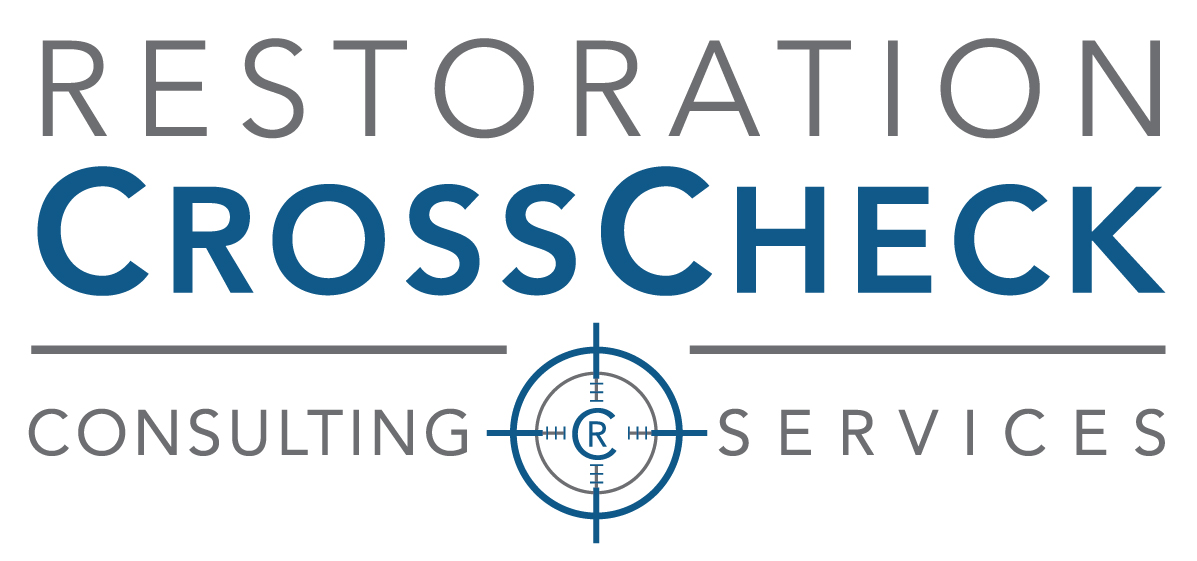Turn Data into Dollar$
How Sharing Information Boosts Your Bottom Line
By Edward H. Cross
Founder, Restoration CrossCheck LLC
Building a Winning Team: The Restoration Contractor’s Path to Success
Restoration success isn’t just about swinging a hammer or setting up equipment. It’s about cultivating a team atmosphere around each claim, where all the project stakeholders work together with a shared goal. The ability to operate with kindness, share critical information, and track every detail of the job is the key to ensuring projects are completed smoothly, and most importantly, profitably.
The Power of Teamwork
At the heart of every successful restoration project is a well-oiled team. But bringing together a group of professionals who often have different priorities, pressures, and perspectives can be challenging, or downright nasty, depending on how you navigate the personalities. As a restoration contractor, your role isn’t just to manage the physical work; it’s to create a collaborative environment where communication flows freely, and everyone feels valued.
For instance, consider a situation where a major storm has caused widespread damage. You’re called in to restore several properties, but you quickly find that the independent adjuster assigned to the job is overwhelmed with claims, and the third-party consultant is skeptical about your proposed methods. It’s easy for tension to build, but this is where your leadership shines. By fostering a team atmosphere—where you encourage open communication, respect each stakeholder’s expertise, and focus on the common goal of restoring the property—you can turn a potentially adversarial situation into a cooperative one.
Kindness as a Business Strategy
Kindness in restoration? What? Yes, I said it, motivated by the latest video from Nicholas Sekol. You may be thinking “Why should I be kind to rude adjusters and cocky bill reviewers?” It’s because your level of professionalism will put dollars in your pocket.
Operating with kindness might sound like a soft approach in a tough industry, but it’s actually a powerful business strategy that boosts net profit. Kindness isn’t about being a pushover; it’s about showing respect, understanding the pressures others face, and being willing to listen. When you treat the adjuster, consultant, and other stakeholders with respect and kindness, you build trust. Trust leads to smoother negotiations, quicker approvals, and ultimately, faster payment. Most importantly, when you show respect, you are entitled to respect.
For example, some adjusters never hear what contractors have to say because they interrupt them. If you refrain from interrupting, you have earned the right to demand that they do not interrupt you! Their words may make your blood boil, but listen and stay calm, looking for an opportunity for a resolution.
If an independent adjuster is causing delays in approval, instead of reacting defensively, stay calm and take the time to explain your reasoning, provide documentation, and listen to their concerns. Assume the role of a trainer. This approach not only improves your chances of resolving the issue but also establishes you as a knowledgeable and reasonable professional who values the adjuster’s input. The next time they work with you, they’re likely to be more cooperative, knowing you’re someone they can trust.
Information Sharing: The Key to Efficiency
Sharing information isn’t just about being transparent; it’s about ensuring that everyone on the project is working with the same data, understands the progress, and knows what’s expected. Delays and misunderstandings can quickly eat into profit margins, so clear communication is critical.
Track your response time, equipment, labor, and materials meticulously because that is data you can turn into dollars. If you’re not thoroughly documenting these details, and if this information isn’t easily accessible to the insurance carrier, you’re setting yourself up for disputes and delayed payments. By using digital tools to track and share this information in real-time, you not only keep the project on track but also demonstrate to the carrier that you’re running a tight ship, and commanding their respect. This can lead to faster approvals and fewer payment disputes, directly impacting your bottom line.
Pitfalls to Avoid
While cultivating a team atmosphere and focusing on kindness and information sharing can lead to great success, there are pitfalls to watch out for. One common mistake is neglecting the importance of timely and accurate documentation. If your team fails to document every step of the restoration process, you leave room for doubt and disputes. This not only slows down the project but can also cost you money in the long run.
Another pitfall is allowing tensions to fester among team members or stakeholders. If communication breaks down, it can lead to misunderstandings, mistakes, and even conflict. As the contractor, it’s your job to keep the lines of communication open and to mediate any disputes before they escalate. Remember, a happy team is a productive team, and that directly impacts your revenue and profit margins.
The Path to a Better Future
The restoration industry is full of pressures—tight deadlines, demanding clients, and ever-present financial concerns. But it doesn’t have to be a constant struggle. By embracing proven strategies for cultivating a team atmosphere, operating with kindness, and sharing critical information, you can simplify your work, improve your project outcomes, and boost your profit margins.
You don’t have to learn these lessons the hard way. There’s no need to repeat the mistakes made by those who came before you. The key to success lies in learning from experts who have decades of experience in the trenches, solving the very problems you face today. These seasoned professionals have developed strategies that work, and they’re willing to share them with those who are ready to listen.
Imagine a future where your projects run smoothly, your team operates like a well-oiled machine, and your profits reflect the hard work you put in. This isn’t a pipe dream—it’s a reality that’s within your reach if you choose the right mentor. Find someone with real-world experience who understands the pressures of the restoration industry and who has a track record of success. By building on their knowledge and implementing their strategies, you can transform your business and achieve the success you’ve always envisioned.
Conclusion
It’s not enough to be good at drying buildings or removing soot—you have to be good at leading, communicating, and building a team. By focusing on these skills, you can not only improve your project outcomes but also ensure that your business thrives in an increasingly competitive market. Life as a restoration contractor doesn’t have to be a constant uphill battle. With the right approach and the right mentor, you can build a business that’s both profitable and sustainable, setting yourself up for long-term success.
Ready to hone these skills? Click here.


